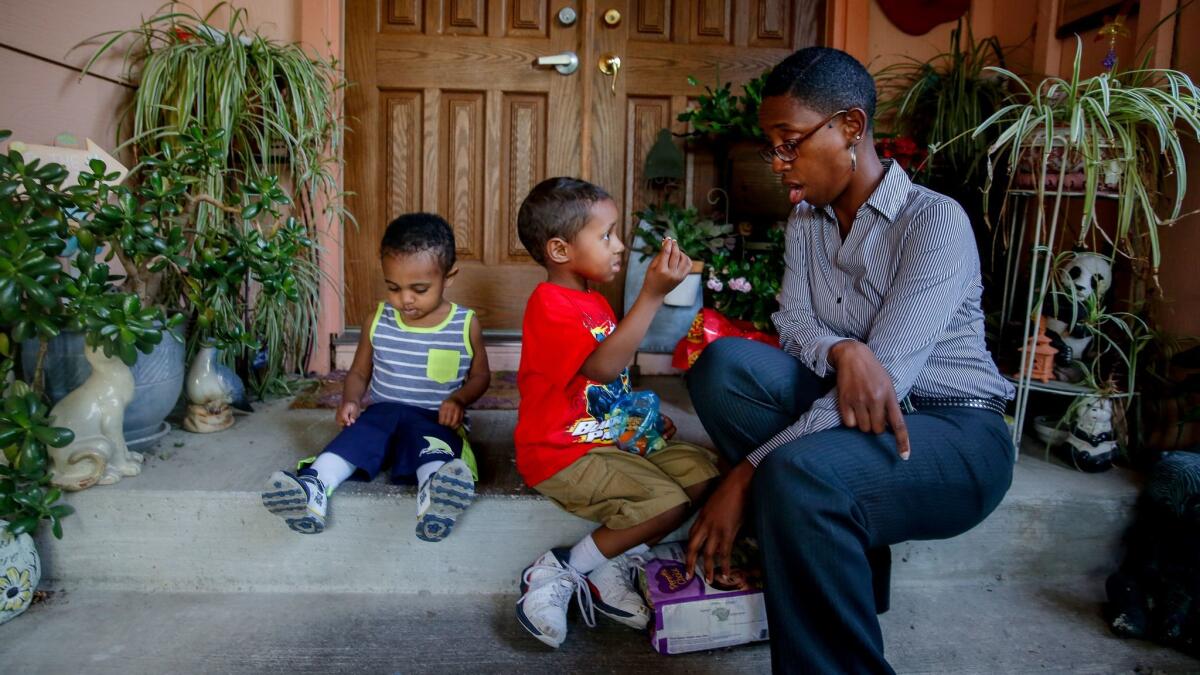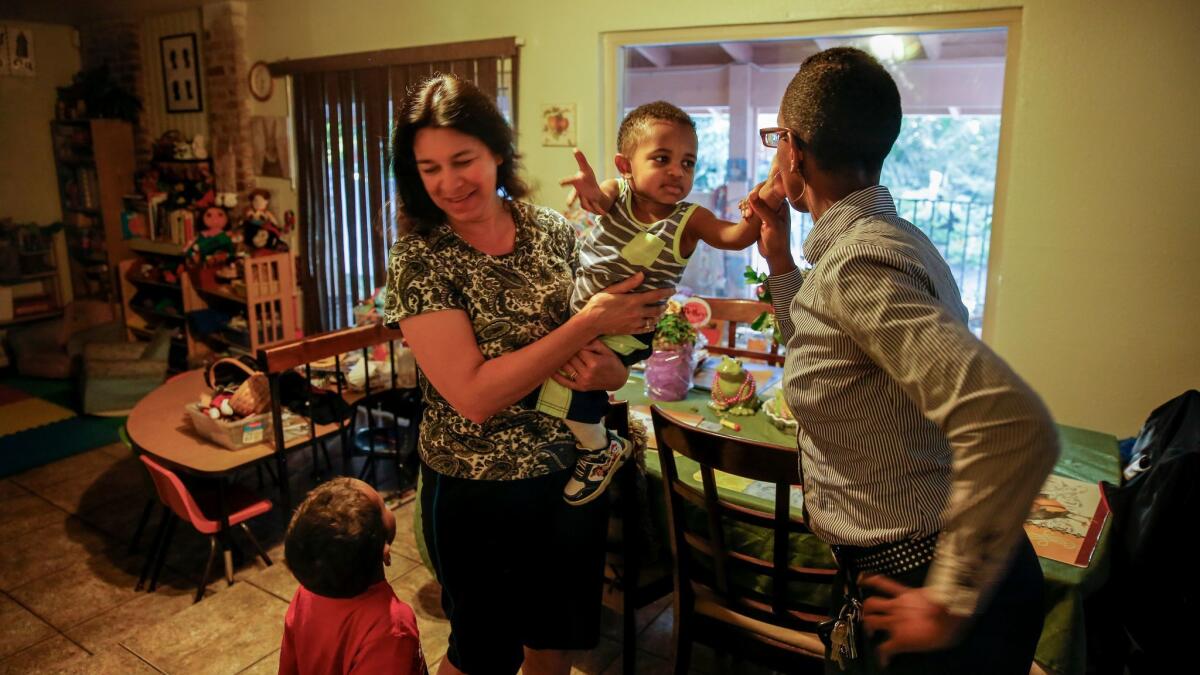Child care credit, which fell behind inflation, may get boost from California Legislature

California’s Legislature has proposed making more low-income families eligible for subsidized child care. In budget hearings last week, the Assembly and the Senate voted to increase the income allowed to qualify for the benefit.
Senate leader Kevin de León (D-Los Angeles) and Assembly speaker Anthony Rendon (D-Paramount) will wrangle with Gov. Jerry Brown over several suggested tweaks to his revised proposal over the next two weeks, and face a June 15 deadline to send him a final budget.
Brown did not have the increase in his revised budget plan, released in May.
The state hasn’t raised the income to qualify for child care subsidies since 2007, when it required a family to make no more than 70% of the state median income in 2005.
Today, a family of three can make no more than $42,216 to get funding. If Brown OKs the Legislature’s proposal, the income limit would rise to $4,358 a month, or $52,298 a year, according to the nonprofit California Budget & Policy Center.
The median income for a family of four in California has increased by about $16,000 since 2005, to $83,012, according to federal data.
The decade-old income limit has made it harder for poor families to keep the child care benefit while reaping the rewards of a rising minimum wage, advocates say.
After the state’s minimum wage went up to $10.50 in January, two parents of one child who work full-time, minimum wage jobs no longer qualify for the benefit, as The Times reported earlier this year.
“We have exacerbated the problem with the Fight for 15, by increasing the minimum wage,” said Senator Holly Mitchell, the Senate Budget Committee chair. “People aren’t moving out of poverty. To earn an additional 50 cents an hour and lose a subsidy that may be $1,200 or 1300 a month is just not fair.”
The state pays for all of the cost for the most destitute families in the program, but parents contribute larger amounts toward care as their incomes rise.
Parents across the state have chosen to stall their careers in a desperate scramble to keep their kids in affordable day care, say providers and advocates.
The legislature’s decisions “are causing women to turn down raises, turn down promotions, to sacrifice their own economic well-being,” said Mary Ignatius, a statewide organizer for Parent Voices, an advocacy group.
Francis Brown is staring at that bleak choice.
The first time the 37-year-old got a promotion to executive assistant to the director at the Vacaville State Hospital, in August 2016, she was thrilled. Her monthly pay rose by a little more than $600, which wasn’t enough to disqualify the Sacramento resident from receiving some funding for child care.

That subsidy was key for Brown, who now pays $260 a month toward day care for her two boys; the rest of the cost is covered by the state. She gets no financial support from her husband, whom she is in the process of divorcing. Brown says she doesn’t want him to have any control over her life or children.
Then, in February, she found out that she got a raise of $80 a month. Soon after, she won an award for being one of the best employees across statewide hospitals, which came with a $250 bonus.
Brown says she was “horrified.” She had just inched above the $3,518 monthly income limit for a family of three, and faced a $1,300 day care expense.
“All I could think of is ‘I am going to lose my subsidy, my child care,’” she said.
Besides the higher earnings ceiling, the legislature’s proposed fix would let parents whose incomes rise stay in the program for a year, as long as their earnings didn’t exceed 85% of the state’s median income.
The legislature estimates that those tweaks would cost the state $20 million, though the Department of Finance’s estimate is a bit higher, at $30 million. The governor’s budget plan amounts to $180 billion in total.
H.D. Palmer, a spokesman for Gov. Brown’s Finance Department, who declined to offer specific comments on the proposals.
The governor proposed pausing additional funding for child care in his first budget plan, released January, “due to what then were lower-than-anticipated revenue projections at the time,” Palmer said in an email. But in his revised May plan, Brown reinstated that money because revenues had improved since January, Palmer noted.
California gutted child care funding during the recession. Even though the overall budget has increased since then, the state is still spending around $600 million less on day care and preschool in 2017 dollars than it was in fiscal year 2007-08.
The governor’s most recent budget proposal provides 66,700 fewer day care and preschool slots compared with fiscal year 2007-2008, said Kristin Schumacher, an analyst at the California Budget & Policy Center.
“It’s balancing the budget on the backs of children,” said Schumacher.
Despite the raise and bonus, Francis Brown managed to hold on to her funding because she has been missing work recently and not earning the new, higher salary.
Her 4-year-old, Samuel, was diagnosed with a cancerous tumor in October, and Brown has had to take time off regularly to bring him to the hospital for radiation, chemotherapy and medical tests.
But Brown is ambitious, and her respite won’t last. She’s applying for a higher-level analyst job in state agencies, which would pay her about $1,200 more a month. Even if she doesn’t get that new gig, she’s due for a small raise in August.
Either pay bump would disqualify her from getting subsidized child care, unless the Legislature convinces the governor to update the income limit. In the meantime, Brown said, she’ll decline the raise for as long as she can.
Follow me @NatalieKitro on Twitter







